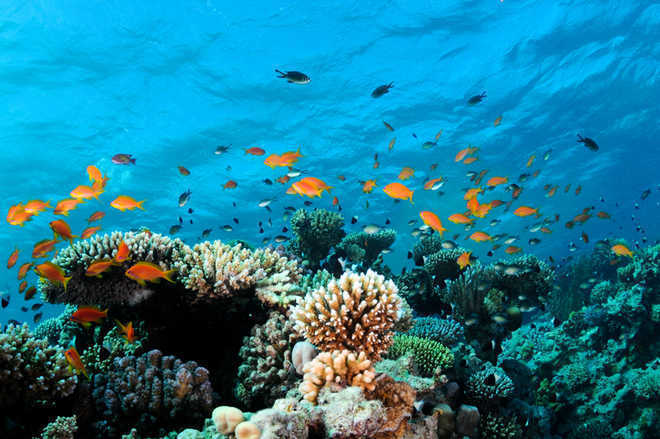
Photo for representation only. — Thinkstock.
Panaji, January 12
Scientists are working on a project to accurately predict areas of abundant fish in sea well in advance.
Researchers from the CSIR-National Institute of Oceanography (CSIR-NIO) are using satellite imagery and underwater gadgets to come up with correct forecast - nearly one month in advance - about locations of shoals of fish in sea waters.
The fishing industry currently banks on daily advisories to fisher folk provided by the Hyderabad-based Indian National Centre for Ocean Information Services (INCOIS).
"To enhance the fishery sector, we are working in a direction to see how we can predict the presence of fish in the ocean on one month time scale or even longer duration using physics, chemistry and biology," CSIR-NIO Director Sunil Kumar Singh told PTI.
The researchers feel long-term predictions would help in rationing the fishery resources and their harvesting in a sustainable manner.
He said, "The fishing industry is currently getting prediction on a daily basis. What the INCOIS does is to take satellite imagery from frontal zones and predict fish catch."
The CSIR-NIO wants to take a step ahead and scientifically probe why some of the frontal zones are acting as a good source of fishing and some of them not, Singh said.
"We have tried to understand physics and chemistry behind the phenomenon of frontal zones. The prediction by INCOIS is accurate during most of the time but in some areas, it is not successful. The CSIR-NIO is trying to understand why some frontal zones are having catch and some not."
A team, led by senior CSIR-NIO scientist A C Anil, is trying "to understand, not only at the coast but also in open ocean, what is the controlling factor of fisheries and how the chemistry, physics and biology of the ocean is governing it." Singh said based on the research, the CSIR-NIO will be able to predict, on a long-term scale, the amount and kind of fishes available in a particular area.
This, according to Singh, will help the governments know the total stock available in fishing zones and one can plan accordingly for a year.
"Right now, there is no control due to which illegal fishing is going on. The danger is that we will consume all the fishes and nothing will be left.
"So once we are able to predict well in advance (about areas of abundant fish in the ocean), one can plan accordingly," Singh maintained.
The researchers will be banking on a combination of satellite and underwater equipment like moorings and buoys to collect the data for long-term predictions, he added. — PTI.



























